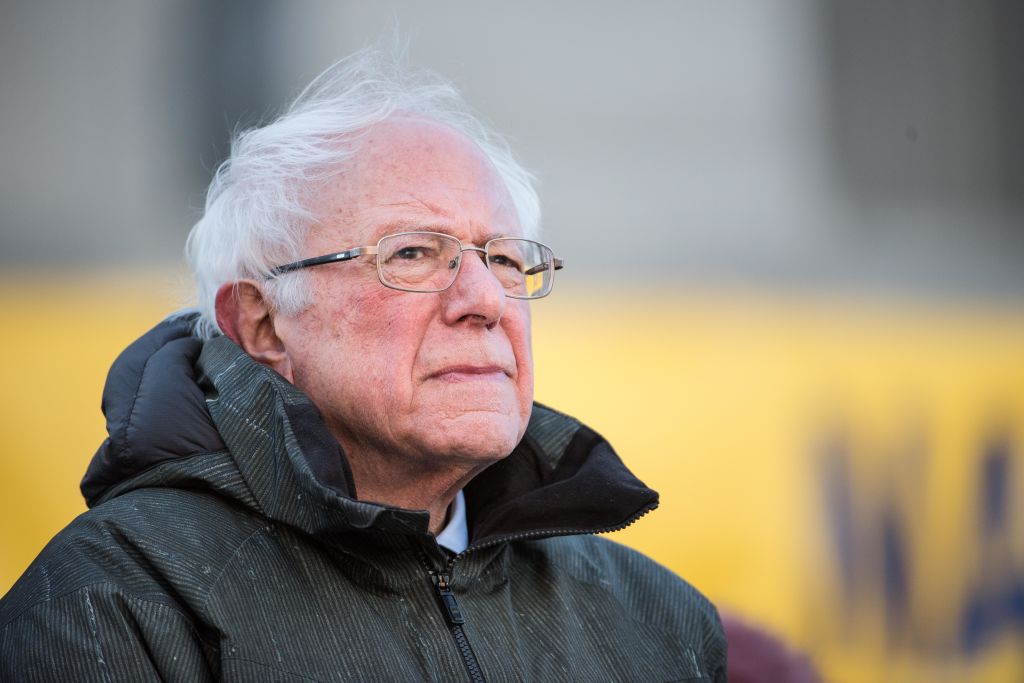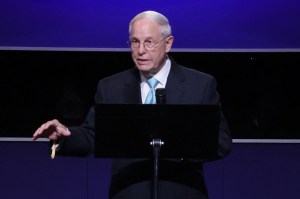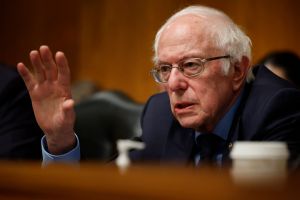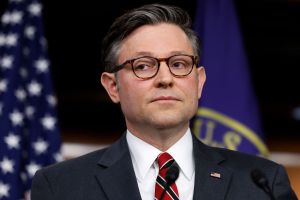Bernie Sanders will imminently announce a campaign for president in 2020, according to a Yahoo News report last night. This shouldn’t come as a surprise, as all indicators have pointed in this direction for months, if not years. But Sanders skeptics and antagonists have expended major energy sowing doubts about his viability – mostly around his age, race, gender, and party registration. Still, none of these cheap talking points have ever detracted from the fundamental reality that Sanders has a large, existing base of supporters, many of whom desperately want him to run and will work on his behalf. Were Sanders to bow out under pressure, it would reasonably be interpreted as a woeful capitulation.
A senior Sanders aide quickly chimed in after the Yahoo story broke, to say that ‘no decision is imminent,’ but it probably just depends on how you define the word ‘imminent.’ Last week Sanders met with the South Carolina state legislature’s black caucus, and there would be little reason to do so if a campaign announcement was not forthcoming – especially as Sanders seeks to improve his standing among black voters, arguably the most crucial constituency in the Democratic presidential primary process.
As crude as it might be to suggest, Bernie’s ‘problem’ with these voters – the subject of a lot of painfully bad commentary in 2016 – should be less debilitating this time around. There is little question that Hillary Clinton’s support among this constituency, particularly older black voters, formed the core of her winning coalition in the last cycle’s primaries, and served as a bulwark against Sanders’s rapid gains among a variety of demographics. For 2020, however, there is good reason to believe that the black vote will be more diffuse. (It should also be noted that the ‘black vote’ is nowhere close to a monolith, and younger black voters were significantly more likely to back Bernie in 2016 than their elders – a fact often ignored by media nay-sayers.)
Kamala Harris, a mixed-race black woman, is running. So too, probably, will Cory Booker. And Joe Biden, widely revered as the first black president’s trusty sidekick, is also moving closer to a run. Therefore black voters are far less likely to coalesce around one obvious candidate. And there’s also a good possibility that Sanders’s strong national profile relative to 2016 will draw greater support among black voters than the previous go-around, when he was a virtually unknown senator from Vermont for much of the campaign. (Bernie is reportedly heartened by his solid approval ratings among minority groups – one recent poll showed that he is viewed more favorably by black Democrats than white Democrats.)
The larger the field, the better for Sanders. In the early stages of the primary process, it has to be emphasized, all that will be required to win contests is a slim plurality. With so many candidates, Sanders does not have to comprehensively broaden his appeal for the time being – and the fact that so many factions of the party hate him with a burning passion will not necessarily impede success in, say, the Iowa caucus. Indeed, his intransigent attackers may cause him to be cast in an even more positive light, because they could come to be seen as the last remnants of a dying, discredited, Clinton-allied cohort in the party coalition, while Bernie provides an attractive contrast.
Still, it should not be underestimated how loathed Sanders is by some recalcitrant Democrats. Their attempts to appease him over the past two years – in hopes that he would politely withdraw from the spotlight – have not worked. If anything, these efforts only further showcased his political leverage. And if you wield such leverage, the natural thing to do is to marshall it into a presidential campaign. But the indignant screeching, smears, and vitriol will truly be a sight to behold. Mention Sanders’s name on Twitter and you’re bound to incur dozens of angry liberals defiantly proclaiming ‘he is NOT a Democrat’ – as if that were a point against him, rather than central to his appeal.
There had been some (misinformed) speculation that Tulsi Gabbard’s presidential announcement somehow suggested Bernie would not run, considering she was a high-profile surrogate for his 2016 campaign and is a fellow at the recently-formed Sanders Institute. But that misreads the situation. Tulsi has her own core issues – namely foreign policy – which differ from what Sanders tends to emphasize. Though Sanders has taken more assertive steps lately with respect to foreign policy, such as successfully shepherding a Senate resolution to curtail US involvement in the Saudi-led besiegement of Yemen, it’s never been what drives him most. The two could complement one another in ways that produce a more fruitful debate. (They will also collectively fill mediocre liberals with blinding rage.)
Delaying his announcement somewhat was actually a rational power-move for Sanders; he’s already got a national infrastructure in place, unlike some of the other declared candidates, and doesn’t have to start from scratch. And he declared his candidacy much later last cycle – April 30, 2015. So there are reasons to leave people yearning for awhile. But barring some unforeseen catastrophe, he’s obviously running. And the furious smears will quickly follow: he’s somehow backed by Russia, he hates women, he’s too divisive. It’s all bunk. Sanders is clearly the strongest candidate – on numerous levels – and it’s only sensible that the strongest candidate would run for president.


















